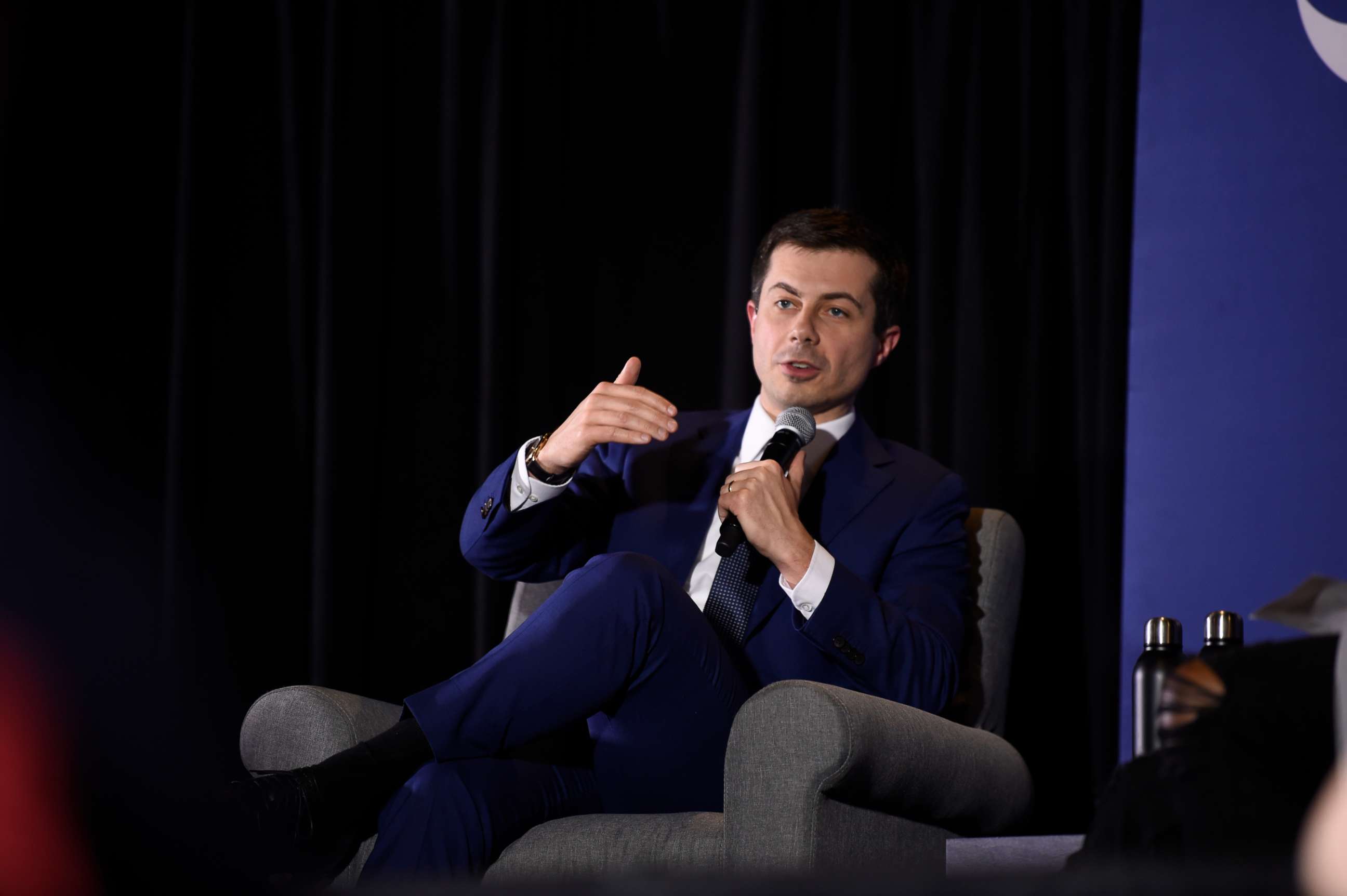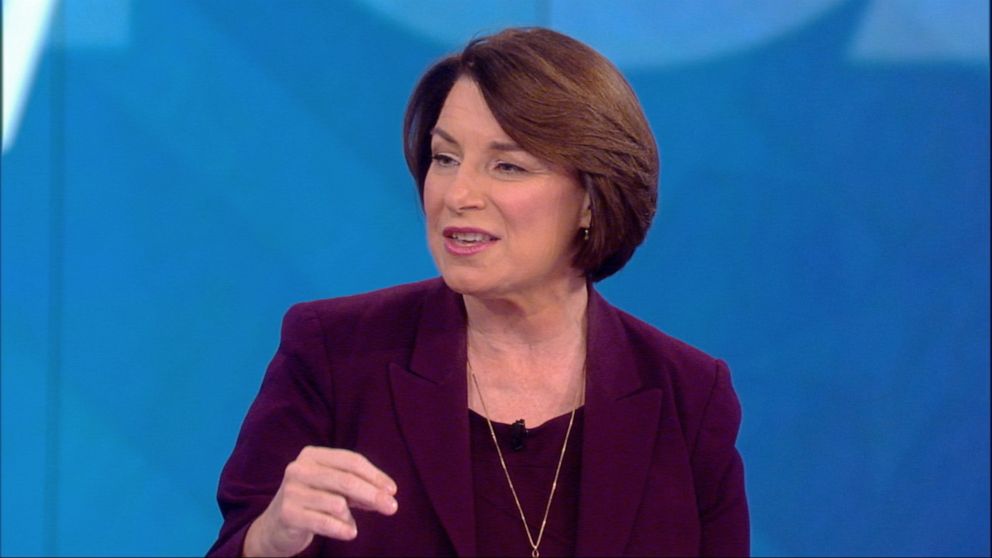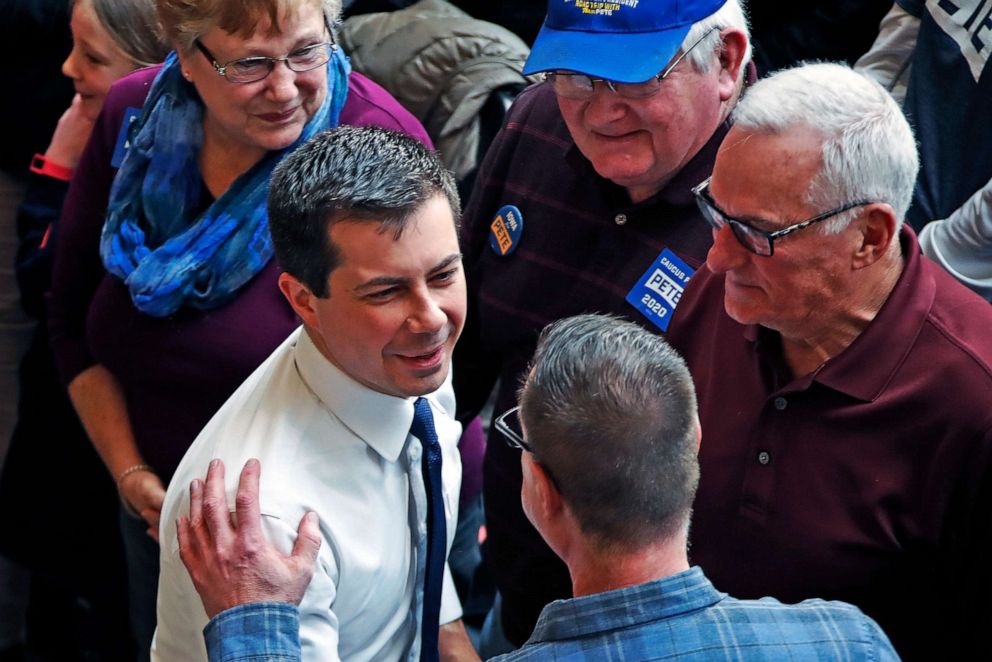Some Iowa caucus-goers question Buttigieg’s viability, citing struggle to build a diverse coalition
Low black voter support could call his campaign's viability into question.
As Democratic presidential candidate Pete Buttigieg doubles down in Iowa with back-to-back campaign events in the final days before the caucus, some Iowa voters are looking at his low poll ratings among African Americans and raising concerns.
The former South Bend, Indiana mayor still hovers around 2% among black Democratic voters and black Democratic-leaning independents, according a recent Washington Post/ Ipsos poll.
With minority voters making up nearly a third of the electorate, the low black voter support for Buttigieg’s presidential campaign could call his viability into question.
Some Iowa caucus-goers have made it known that they are aware of the 2020 hopeful’s continued struggle with attracting the voters of color and asked out-right if a vote for him will be worth it.
“I really love the message that you're giving,” a man told Buttigieg in Vinton, Iowa Tuesday. “However, it concerns me a lot that it apparently is not being received by communities of color. Your polling numbers in those areas are not very high. What can you tell us to make us more confident that a vote for you on caucus night is going to continue all the way through and you have what it takes to make it to the end,” he asked.
Buttigieg touted his support from black voters in his hometown of South Bend and also noted his outreach strategy of hosting intimate conversations with communities of color to introduce them to his policies.
He acknowledged that some minority voters may be skeptical of presidential candidates due to previous election cycles that left them feeling taken for granted by both Republicans and Democrats--- a sentiment that adds a layer of complexity for a fresh-faced candidate looking to court the Democratic Party’s must-win voting bloc.
When asked what he is doing to earn the African American vote, Buttigieg told voters at a North Liberty, Iowa town hall that he has been promoting his Douglas plan, a policy proposal that aims to use federal dollars to address racial gaps in wealth, business and education.
“We have put forward what we call the Frederick Douglass plan, the idea that it should be as ambitious as the Marshall Plan that rebuilt Europe, but this time investing right here at home to tear down systemic racism in all its forms,” Buttigieg said.

Inside the campaign, staffers told ABC News that proving Buttigieg’s electability will eventually attract black voters to his campaign.
The former South Bend, Indiana mayor has therefore largely focused campaign resources in Iowa and New Hampshire, early voting states with predominately white Democratic electorates.
In Iowa alone, Buttigieg has spent $6.5 million in television campaign advertisements, the second-highest investment in the race, according to a report released by Wesleyan Media Project on Thursday.
“The best thing we can do to convince black voters that Pete [Buttigieg] is a good choice is to win in Iowa and that’s our focus,” said Lauren Brown, Buttigieg’s South Carolina communications director. She and her fellow staffers are organizing ahead of the Palmetto State’s first in the South primary, where roughly two-thirds of the electorate is African American.
“Black voters are focused on electability across the board and we are not one of those campaigns with unlimited dollars to spend so we are going to use our resources smartly,” Brown continued, adding that the campaign hopes to use the momentum from the first two primary contests to kick-start Buttigieg’s push into more diverse states like South Carolina, as well as in Nevada where over 60% of the Democratic electorate is Latino.
Though electability remains a top priority for Democratic voters according to a recent Gallup survey, Buttigieg's steady momentum has done little to cement his support with voters of color.
The mayor’s campaign investments combined with his message of “generational change” has propelled him to front-runner status in the presidential race. He stands in a solid third place in Iowa at 13% just below former Vice President Joe Biden and Vermont Sen. Bernie Sanders, according to a Monmouth Poll released Wednesday. In New Hampshire, he’s polling at 10%, coming in fourth place according to a Franklin Pierce/Boston Herald poll released Monday.
But in Nevada and South Carolina, he polls at a distant 6% and 4%, respectively according to Fox News polls conducted in early January.
On the campaign trail, Buttigieg continues to attract largely white audiences, something he spoke candidly about during a conversation with Angela Rye during her “On One” Podcast, which was taped in the campus theater at Claflin University, a historically black college in Orangeburg, South Carolina.
“I'll be honest, it’s mostly white folks showing up... I'm happy for the folks who are showing up, but in order not just to win to deserve to win. I got to be speaking to everyone,” Buttigieg said, explaining that improving support is that will continue to earn.
Buttigieg is not the only candidate who is polling low with some voters of color.
Front-running Democratic candidate Massachusetts Sen. Elizabeth Warren polls at 9% among black Democratic-leaning registered voters, according to the Washington/ Ipsos poll. The campaign has enlisted surrogate powerhouses Rep. Ayanna Pressley, D-Mass., and Black Womxn, a Democratic coalition for African American women, to campaign in diverse early and Super Tuesday states to attract more women of color to her campaign.
Minnesota Sen. Amy Klobuchar, who shares a New York Times endorsement with Warren, polls below 1% with black voters and continues to struggle with earning support in communities of color.

Her prosecutorial record has also recently come under fire in her home state of Minnesota after the after an Associated Press report raised questions about her role as a prosecutor in Minneapolis in a case in which her office charged Myon Burrell, who is black and was then 16, in the 2002 shooting death of Tyesha Edwards, an 11-year-old girl who was killed while sitting at her family's dining room table. The AP report, done in conjunction with American Public Media, found multiple inconsistencies and additional evidence that has raised questions about the police department's handling of the case.
Burrell was ultimately sentenced to life in prison.
Activists,including representatives from the locally based Racial Justice Network, a grassroots group, the Minneapolis chapter of the NAACP, Black Lives Matter's Twin Cities chapter, Twin Cities Coalition for Justice for Jamar, and Communities United Against Police Brutality--a locally, are all now calling for her to withdraw given her role in sending someone they see as innocent to prison for life.
The Klobuchar campaign maintains that Burrell was tried and convicted twice, with the second trial happening once she was out of that office, and that if there is indeed new evidence it should be reviewed by the court immediately.
“Senator Klobuchar has advocated for reforms to our criminal justice system over the years, including during her time as Hennepin County Attorney. If there is new evidence in this case, it should be immediately reviewed by the court,” Carlie Waibel, Klobuchar's national press secretary told ABC News in a statement.
Klobuchar, Warren, and Buttigieg also share a debate stage with businessmen Andrew Yang and Tom Steyer, who both poll at 3% and 2%, respectively among African American Democratic-leaning registered voters voters in the Washington Post/Ipsos poll.
However, it is Buttigieg's on-going issues with diversity that put his struggle with voters of color under unique scrutiny.
As Buttigieg rose in visibility, his campaign briefly came to a pause following its biggest crisis: the fatal police shooting a black man in South Bend. His handling of the incident and subsequent admittance of missteps exposed the long-standing tension between the black community and the police department in his hometown.
The moment came in an election cycle in which black voters have indicated in polls that they are looking closely at candidates with a proven track record for championing criminal justice reform.
Buttigieg also had to answer for his record after coming under fire for firing South Bend’s first black chief.
Earlier this week, the New York Times reported insider accounts of frustration within the Buttigieg campaign over its alleged treatment of staffers of color.
The Times obtained a recording from a mandatory retreat in December about diversity and inclusion. The details of this retreat were leaked by a former campaign staffer, a source inside the campaign told ABC News. ABC News has not obtained a copy of the recording.
During the meeting, attendees of color expressed feeling unheard when sharing ideas on how to boost minority voter outreach and experiencing racial microaggressions--subtle acts of discrimination against marginalized groups, a different source with direct knowledge of the retreat confirmed to ABC News. The New York Times report, for example, detailed an account from Hispanic staffers who said they were asked to translate Spanish texts, though they did not speak the language.
The Buttigieg campaign disagrees with that characterization and highlighted its efforts to translate campaign materials into Spanish.
"Not only that, Pete himself has been eager to work on his Spanish and has participated in several practice sessions. I’m proud to work for a campaign that has prioritized both Latino and Spanish-language outreach and to work for a candidate who has prioritized being a part of this process himself," Manuel Bonder, an assistant to the campaign's rapid response team later told ABC News.
Following a town hall in Ottumwa, Iowa on Tuesday, Buttigieg did not directly answer questions regarding the New York Times report. When asked if he’s done anything personally to address some of the concerns from his staff, Buttigieg wouldn’t say yes or no, but noted that he did speak to staffers about the issue.
“First of all, I just want to say I'm so thankful to the staff of color who bring so much to this campaign,” Buttigieg said. “It's one of the reasons why we've taken steps that may not be something that is typical or has happened a lot before in presidential campaigns, to try to empower staffers at all levels to be able to speak to their experiences, to raise concerns and to have these tough conversations," he continued, adding that he would look to build an environment of inclusion in the White House if elected president.
Rodericka Applewhaithe, who is black and a senior researcher from the Buttigieg campaign's rapid response team, told ABC News the campaign will continue to have conversations about diversity.
“It's frustrating because [the leaked recording] violates trust for staffers of color, but we don't regret having those conversations, or feel like they were indicative of something unique to the campaign with regards to the larger narrative attached to Pete,” adding that she’s had diversity training at every place she’s worked in.
Brown, South Carolina communications director, told ABC News the reports reveal Buttigieg's on-going effort to create inclusive environments.

“There isn't a single campaign organization for this presidential campaign that isn't grappling with the internal issue of racial diversity, inclusive, or hierarchy. This is why you have all these progressive running for President. Because this is exactly what we're trying to foster. We want people who feel unheard to feel heard, whether that's internally in a campaign or a rural town in South Carolina,” Brown, who is black, explained.
At the event in Ottumwa, Iowa on Tuesday, Buttigieg was asked if it frustrates him personally that despite his efforts to win over black voters this past year he has seen little progress in his quest to build a diverse coalition.
“I’m humbled by the challenge of making sure that we connect, especially with voters who have every reason to be skeptical… I don't think the biggest thing to be worried about is whether it's frustrating for me," Buttigieg said. "I think that Americans, especially workers of color across the country and people of color in this campaign, Black staff on my campaign, have had to deal with all of the complications that come with being in a workplace.”
He later added, “We're taking steps that I'm proud of our campaign for taking. That may be unusual by the standards of presidential campaigns, but are the right thing to do.”
ABC News' Meg Cunningham, Kendall Karson and Lissette Rodriguez contributed to this report.



